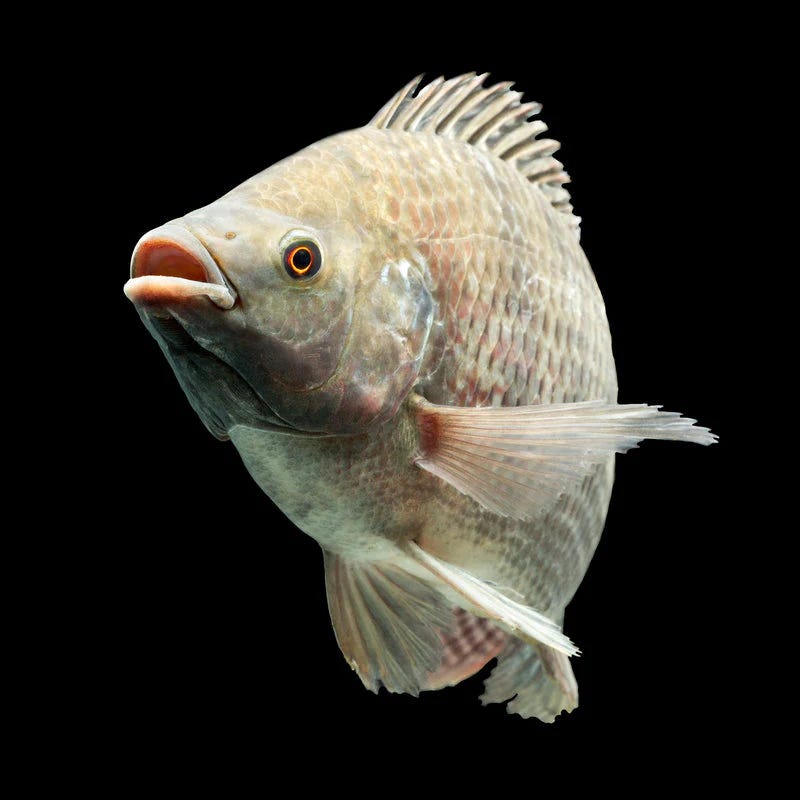🐡 Hy-five: Extract Quality Report, Rewiring Agriculture, Cancer Therapy Compounds, Aquafeed, Rhizopus Fashion
Sporadic round-up of mycological research and industry news.
Hello dear fungi enthusiast,
How do we actually know what's in a mushroom extract? Are beta-glucan percentages and extraction ratios enough to judge quality? Can brands reliably claim health benefits if they aren’t measuring the compounds that matter? How do we verify that what’s on the label matches what’s in the bag? And critically—how could we justify premium pricing without verifiable data on the most researched bioactive compounds of interest?
MUSHEEZ has just released its first in-depth industry report — Elevating Mushroom Extract Quality: A Science-Driven Approach to Transparency and Efficacy. Aimed at food supplement professionals, brand owners, and formulators, this 38-page free report exposes the limitations of outdated testing metrics and makes the case for a shift to verified, compound-level analysis.
Learn more and download the full report here.
#1 Groundwork for the Future: How Fungi Are Rebuilding Soils and Rewiring Agriculture’s Impact
For decades, agriculture has operated on a model of extraction: drawing nutrients from the soil, applying synthetic chemicals to boost yields, and pushing the limits of productivity. But the result has been alarming—depleted topsoil, biodiversity loss, and escalating climate impacts.
Soil degradation is one of the greatest threats to global food security. Fungi—resilient, regenerative, and vastly underused—could be agriculture’s most promising ally in restoring soil ecosystems and reducing the environmental toll of modern farming.
At FA Bio, a UK-based microbial discovery company, fungi are being rediscovered not as pathogens or decomposers, but as critical players in the regeneration of soils. Their role in cycling nutrients, supporting plant resilience, and balancing microbial ecosystems is being decoded—and turned into real solutions for farmers.
#2 Spent Oyster Mushroom Substrate Enhances Tilapia Health and Growth in Aquaculture Feeds
As aquaculture continues to grow, the industry is under increasing pressure to improve fish health while reducing reliance on antibiotics and expensive feed inputs. A recent review published in the Latin American Journal of Aquatic Research suggests that one promising solution may be found in an unlikely source: spent oyster mushroom substrate.
Spent oyster mushroom substrate represents a low-cost, nutrient-rich by-product that could help reduce feed costs and improve fish health in tilapia aquaculture. Its bioactive properties—especially antioxidant and immunostimulatory effects—warrant further exploration, particularly as the industry looks for sustainable alternatives to synthetic additives and antibiotics.
#3 How Moldy Bread Might Save the Planet (and Reinvent Your Wardrobe)
Could the next big thing in fashion come from your food waste? At the University of Borås in Sweden, scientists such as Kanishka Wijayarathna are making this a reality. They transform food waste into eco-friendly and trendy materials. Picture a leather jacket made without using cows or fabric threads created from fungus instead of cotton or polyester.
Their journey began with bread, one of the most wasted foods worldwide. Instead of tossing stale loaves into the compost, the team used them to feed a fast-growing fungus called Rhizopus delemar. This fungus produces a dense, fibrous network that resembles the structure of animal hides when processed.
4# Fungal Compounds Show Promise in Cancer Therapy: Mechanisms, Molecules, and Future Outlook
A new review published in AIMS Molecular Science (2025) offers one of the most detailed inventories yet of fungal compounds with anticancer potential. With cancer incidence expected to rise nearly 77% by 2050, the search for more effective, less toxic treatments is more urgent than ever. Mushrooms and endophytic fungi are emerging as promising sources of pharmacologically active molecules that interact with key cancer-related pathways.
Need support? Maybe we can help.
MycoStories works with founders, investors, industry leaders, and research institutions.
Leveraging a global network of subject-matter experts, MycoStories helps founders scale their business, guides investors and industry leaders in identifying high-potential opportunities, and empower researchers to translate their work into real-world applications.
Don’t hesitate to reach-out. If we can’t help, someone within the community will. ✊🏽









